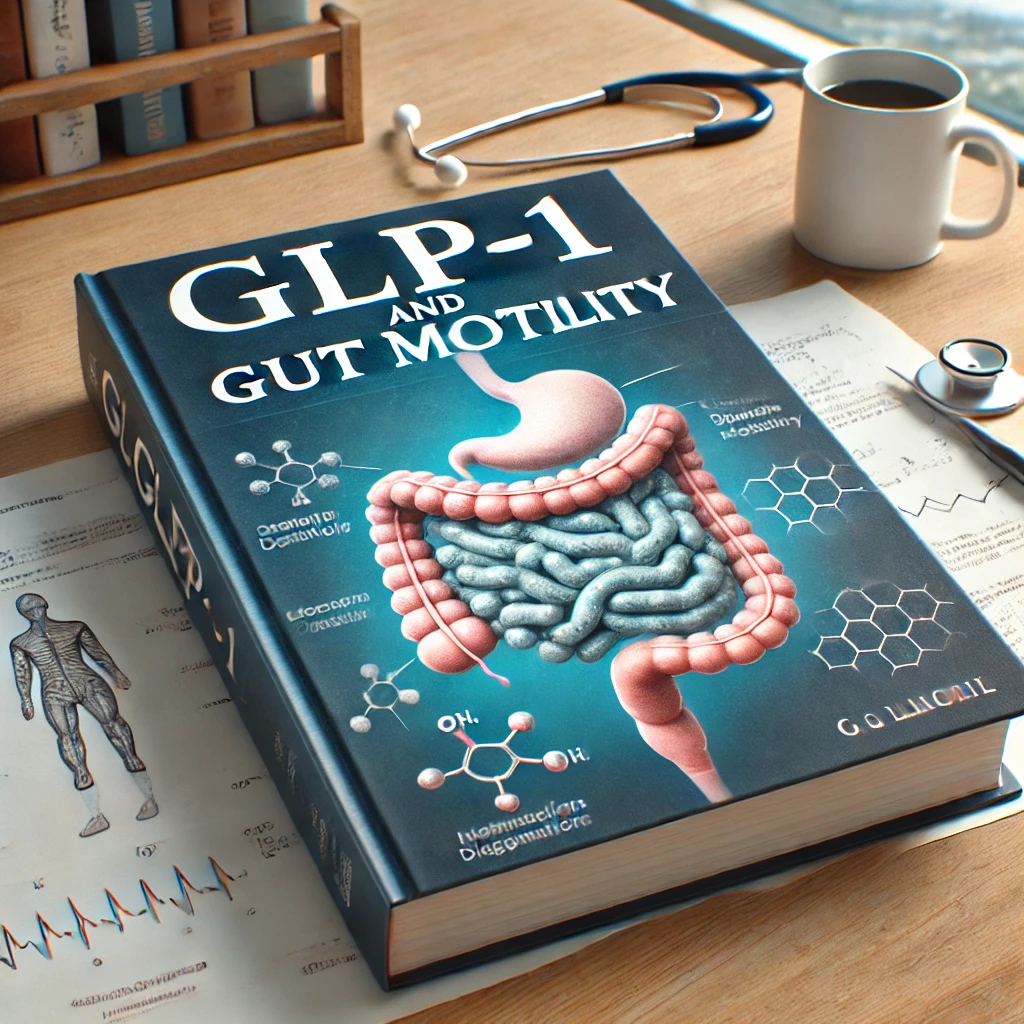How GLP-1 Medications Slow Gut Motility — And Why It Matters

How GLP-1 Medications Slow Gut Motility — And Why It Matters
GLP-1 medications like Ozempic®, Wegovy®, Mounjaro®, and Trulicity® have revolutionized weight loss and diabetes care. These powerful drugs curb appetite, help stabilize blood sugar, and promote weight loss — often dramatically. But behind their effectiveness lies a mechanism that doesn’t get enough attention: delayed gut motility.
If you're taking a GLP-1 agonist or considering one, it’s important to understand how these drugs slow down your digestion — and what that means for your gut, your comfort, and your long-term health.
In this blog, we’ll explore how GLP-1s affect gut motility, the symptoms they may cause, and how to support your digestive system while on these medications.
What Are GLP-1 Medications?
GLP-1 (glucagon-like peptide-1) receptor agonists are a class of drugs used to treat:
- Type 2 diabetes
- Obesity and metabolic syndrome
- Insulin resistance and PCOS (off-label)
They mimic the natural hormone GLP-1, which is released by your gut in response to eating. GLP-1 agonists:
- Slow gastric emptying
- Suppress appetite
- Enhance insulin secretion
- Reduce glucagon release
These combined effects help regulate blood sugar and reduce food intake — which is why they’re so effective for weight loss. But that slower movement of food through the GI tract is also what causes some of the most common side effects.
How GLP-1s Affect Gut Motility
1. Delayed Gastric Emptying
GLP-1 medications slow the rate at which food moves from the stomach into the small intestine — a process known as gastric emptying. This creates:
- A longer feeling of fullness
- Reduced appetite
- Lower post-meal blood sugar spikes
But for some people, this delay can feel like:
- Early satiety (getting full too fast)
- Nausea or vomiting
- Acid reflux or indigestion
The stomach is essentially “backlogged,” which can affect the rest of the GI tract downstream.
2. Reduced Small Intestinal Motility
Beyond the stomach, GLP-1s also slow peristalsis — the wave-like contractions that move food through your small intestine. This can result in:
- Constipation
- Bloating or distension
- Sluggish digestion
- Incomplete bowel movements
For patients with pre-existing gut issues (like IBS-C or SIBO), this can worsen symptoms or increase the risk of bacterial overgrowth due to stagnant contents.
3. Impact on Gut-Brain Signaling
GLP-1 receptors are present in the brain and gut, and part of the appetite-suppressing effect comes from signaling the brain that you’re full.
However, this strong gut-brain signal can also:
- Disrupt natural hunger cues
- Reduce interest in eating (sometimes excessively)
- Contribute to food aversions or nausea with strong smells
While helpful for appetite control, it may blunt your body’s natural feedback on digestion and elimination.
Common GI Side Effects of GLP-1 Agonists
- Nausea or vomiting
- Constipation
- Bloating or gassiness
- Diarrhea (less common, often intermittent)
- Acid reflux or heartburn
- Loss of appetite or aversion to food
These are often dose-dependent and more common when first starting or increasing your dosage.
Why Slowed Gut Motility Can Be a Problem
While slowed digestion contributes to weight loss, it can also have downsides if not properly managed:
- Nutrient absorption can be impaired, especially for fat-soluble vitamins (A, D, E, K)
- Detoxification slows down, increasing risk of reabsorbing waste or hormones
- Bacterial overgrowth (SIBO) becomes more likely with stagnant intestinal contents
- Constipation can become chronic and cause discomfort, bloating, and fatigue
- Gallbladder stasis may occur, increasing the risk of gallstones
How to Support Digestion While Taking GLP-1 Medications
1. Stay Hydrated
Dehydration worsens constipation and slows peristalsis. Aim for at least half your body weight in ounces of water daily, and more with exercise or heat.
2. Eat Smaller, Frequent Meals
Large meals are harder to process with slowed digestion. Smaller portions are easier to tolerate and reduce bloating or nausea.
3. Add Digestive Bitters or Enzymes
Natural bitters (like gentian or dandelion) can stimulate digestive juices. Digestive enzymes (especially lipase) help break down fats and ease absorption.
4. Increase Soluble Fiber
Add gut-friendly fibers like chia, flaxseed, psyllium husk, or PHGG to keep bowel movements regular without harsh laxatives.
5. Support Bile Flow
Use supplements like taurine, artichoke extract, or milk thistle to keep bile moving — especially important for those prone to gallstones or on high doses of GLP-1s.
6. Consider Magnesium
Magnesium citrate or glycinate can help ease constipation and support smooth muscle contraction in the gut.
7. Move Your Body
Gentle movement (walking, stretching, yoga) stimulates digestion and helps food move through your system more efficiently.
Functional Medicine Insight: Individualizing Support
At Sheen Vein and Cosmetics, we take a functional medicine approach to help patients get the benefits of GLP-1 medications while minimizing side effects.
We offer:
- GI testing for dysbiosis, SIBO, and digestive enzyme function
- Micronutrient testing to assess absorption and deficiencies
- Customized supplement and nutrition plans to support gut motility, bile flow, and detoxification
- Hormone and metabolic support to balance the whole system
Final Thoughts
GLP-1 medications are powerful tools for weight loss and metabolic health — but their impact on gut motility shouldn’t be ignored. If you're experiencing digestive side effects, it's not a sign the medication isn’t working — it’s a signal your body needs support adjusting to a slower digestive rhythm.
By taking the right steps to support your gut, you can enjoy the benefits of GLP-1s without the bloating, constipation, or discomfort.
Call to Action:
On a GLP-1 medication and dealing with digestive issues? We can help. Contact Sheen Vein and Cosmetics today to schedule a functional medicine consultation and get a personalized plan to support your metabolism and your gut health.